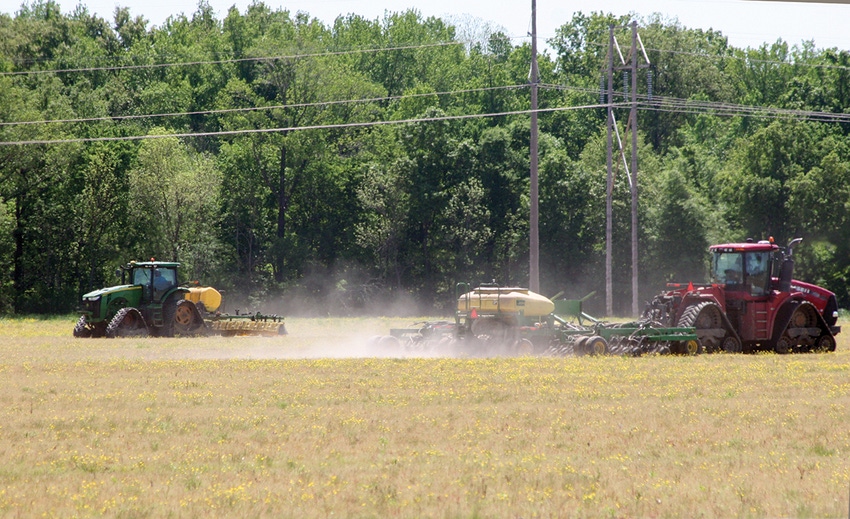
EPA committee reportedly classifies glyphosate as ‘not likely carcinogenic’
“No pesticide regulator in the world considers glyphosate to be a carcinogen, and this conclusion by the U.S. EPA once again reinforces this important fact,” said Hugh Grant, Monsanto’s chairman and CEO. “Glyphosate has a 40-year history of safe and effective use.

EPA’s Cancer Assessment Review Committee appears to have published an official classification of glyphosate as “not likely to be carcinogenic.” But the status of the action is unclear because EPA pulled the committee’s report offline.
EPA took the action Monday (May 2), saying in an email the document was inadvertently published, and the agency had not completed its review. Monsanto, the manufacturer of glyphosate, said the report was marked “Final Cancer Assessment Document” when it appeared on the EPA website.
“The determination is the published conclusion of EPA’s Cancer Assessment Review Committee and is based on the overwhelming weight of evidence on glyphosate,” a press release issued by Monsanto said, providing a link to the CARC report on EPA’s glyphosate docket. The report was later replaced with a sign indicating it had been removed.
In March, 2015, the World Health Organization’s International Agency for Research on Cancer, announced it was classifying glyphosate as a potential carcinogen. A number of groups questioned the classification.
The Monsanto release said EPA is the third regulator to publish its conclusion that glyphosate is not a carcinogen as part of a registration review since the IARC announced an inconsistent classification.
European, Canadian regulatory organizations
The European Food Safety Authority (EFSA) determined in November 2015 that glyphosate is “unlikely to pose a carcinogenic hazard to humans.” Also in 2015, the Canadian Pest Management Regulatory Authority (PMRA) concluded “that glyphosate is unlikely to pose a human cancer risk.”
“No pesticide regulator in the world considers glyphosate to be a carcinogen, and this conclusion by the U.S. EPA once again reinforces this important fact,” said Hugh Grant, Monsanto’s chairman and CEO. “Glyphosate has a 40-year history of safe and effective use.
“Unfortunately, last year’s inconsistent classification by IARC generated unwarranted concern and confusion about this important agricultural tool. This rigorous assessment of the data by EPA builds on the sound conclusions of both the European and Canadian regulatory authorities and once again makes it clear that glyphosate does not cause cancer.”
According to the Monsanto release, “The EPA, Canadian and European assessments all identified flaws with IARC’s assessment. EPA’s conclusion specifically notes that its assessment “includes all of the studies (epidemiology and animals) reviewed by IARC as well as a subset of animal studies reported in a review article by Greim et al. (2015) but not reviewed by IARC.”
To assess glyphosate and other pesticides for health and safety, the EPA requires companies to fund, perform and submit a wide range of studies for review by EPA scientists.
The studies submitted to EPA by Monsanto and other registrants regarding the health and safety of glyphosate are conducted according to strict and internationally recognized quality standards known as Good Laboratory Practices or GLP, according to Monsanto.
Manufacturer-funded testing
“Good Laboratory Practices provide a framework for how laboratory studies are planned, performed, monitored, recorded, audited and archived,” Monsanto said. “These strict compliance guidelines ensure the quality and integrity of the data that are submitted for regulatory review. While U.S. law requires that pesticide registrants fund such studies so that the cost is not carried by taxpayers, the EPA strictly enforces the GLP program, conducting regular inspections to monitor compliance and prosecuting any violators.
For more information about glyphosate, please visit http://monsanto.com/glyphosate.
To see a copy of the Cancer Assessment Review Committee report, visit http://src.bna.com/eAi
About the Author(s)
You May Also Like





